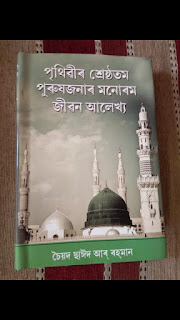


Our wives belong to Allah and not our properties that we own the way we own cars and houses. Our wives are amaana, a trust for us to look after to gain Allah’s pleasure. Any man who doesn’t fulfil this trust doesn’t deserve a wife.
Haleh BananiShe was a featured expert on Al-Jazeera international, Huda TV, Islamic Open University, Mercy Mission and Bayinnah TV.She does skype therapy sessions with people from around the world saving marriages
Read More About Her http://www.halehbanani.com/about-haleh-banani/
50 Facts About Your Wife.
Source of the article :MUSLIM WOMAN https://m.facebook.com/story.php?story_fbid=2340536502637333&id=421016514589351
May Allah SWT bless our wives, mothers, sisters & daughters. Ameen
1- Your wife is not perfect, forgive her.
2- Your wife is the bone of your bone, do not break her.
3- Your wife is a gift, appreciate her.
4- Your wife is a rare gem, guide her jealously.
5- Your wife is your best friend, be friendly with her.
6- Your wife is your joy, nourish her.
7- Your wife is to be cherish, be cheerful to her.
8- Your wife is your portion, cherish her.
9- Your wife is not a devil, don’t dump her.
10- Your wife is not only good for sex, carry her along in every issue.
11- Your wife is not your enemy, encourage her.
12- Your wife is not a family material, never commit her unto the hand of your family members.
13- Your wife is not your rival, don’t compete with her.
14- Your wife is a female gender, honor her.
15- Your wife is not common, don’t compare her.
16- Your wife is not a wash hand base, stop abusing her.
17- Your wife is a weaker vessel, handle her with care.
18- Your wife is a beautiful queen, celebrate her.
19- Your wife is not a fighter, don’t fight her.
20- Your wife is not a punching bag, don’t beat her.
21- Your wife is not a game, don’t play her.
22- Your wife need foreplay, don’t rape her.
23- Your wife is a hook, get hook to her.
24- Your wife is all you love, praise her.
25- Your wife is important, honor her.
26- Your wife is what you make her to be, accept her.
27- Your wife is your joy, pursue her.
28- Your wife needs your honor, never embarrass her in the public.
29- Your wife is not a knife, be nice to her.
30- Your wife is a distinct personality, never compare her to any work.
31- Your wife is loyal, don’t be suspicious of her.
32- Your wife is not a fool, listen to her advice.
33- Your wife is not malicious, do not keep malice with her.
34- Your wife is the best friend you can have, befriend her.
35- Your wife is not a napkin, do not misuse her.
36- Your wife is not your house girl, support her in the kitchen.
37- Your wife is passionate, do not by- pass her.
38- Your wife is very important to you, do not abandon her.
39- Your wife is a queen, do not quarrel with her.
40- Your wife is not the only owner of the sit, help her to baby sit.
41- Your wife is reasonable, do not under- rate her.
42- Your wife is your responsibility, provide for her.
43- Your wife is yourself, do not separate her bed.
44- Your wife is number one in your life, priorities her
45- Your wife is your treasure, jealously guide her.
46- Your wife need your help, help her.
47- Your wife need your full attention, do not give it to T.V set.
48- Your wife is valuable, add more value to her.
49- Your wife is your crown, do not abandon her.
50- You will account to Allah SWT about your wife, handle her with care. She may be or seem fragile, but is strong.
May Allah SWT bless our wives, mothers, sisters & daughters. Ameen






